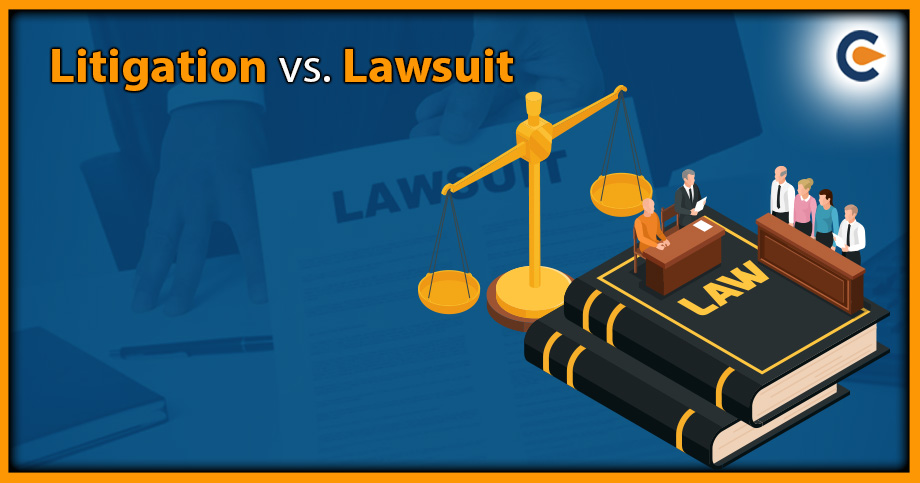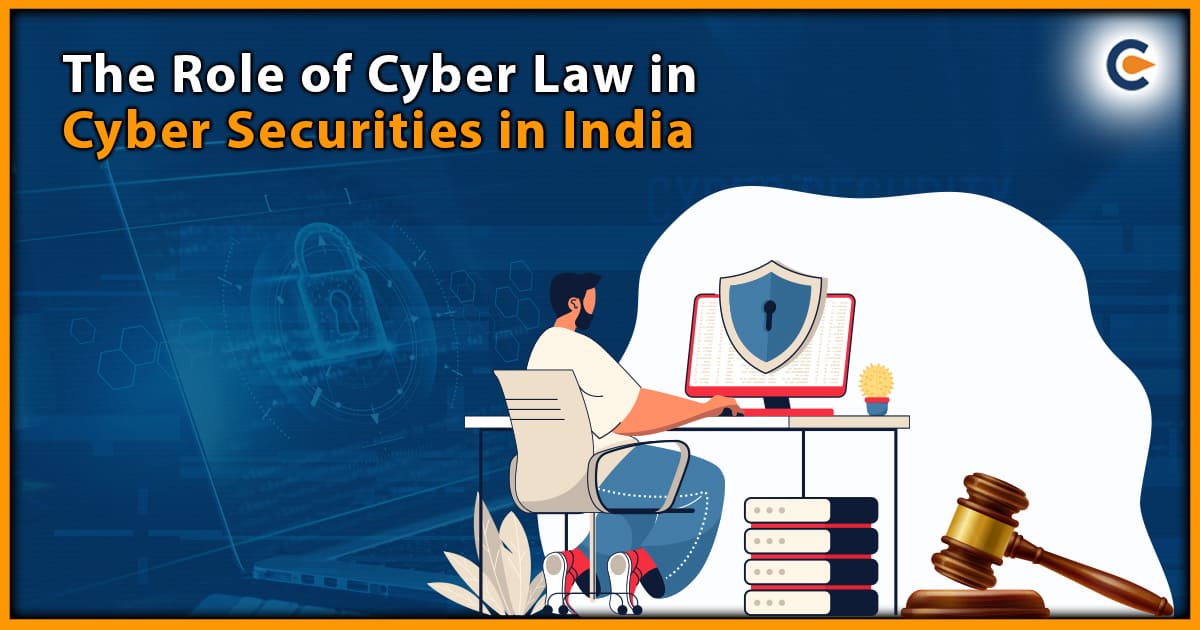Litigation is the process of filing a lawsuit and taking it through the court system to reach a decision. A lawsuit is a legal action taken by one party against another party to resolve a dispute. It typically involves two parties who are seeking a legal remedy for a conflict that they have not been able to resolve through other means. Litigation can occur in civil or criminal courts and may involve a variety of legal issues, including contract disputes, personal injury claims, or employment disputes. The process of litigation can be time-consuming and expensive, but it can also result in a just and fair outcome if the parties are able to work together to find a resolution.
What is a Litigation?
Litigation refers to the formal process of resolving disputes between parties through the court system. It is the act of resorting to the courts of law to enforce legal rights or resolve a legal dispute. In the Indian context, litigation is the process of settling disputes through the legal system of the country. It is an integral part of the Indian legal system, where the courts act as the arbiters in settling disputes.
A complex set of laws, rules, and regulations govern litigation in India. The major laws that govern litigation in India are the Code of Civil Procedure and the Code of Criminal Procedure. These laws lay out the procedure that the parties to a dispute, the courts, and the attorneys representing the parties must follow.
Litigation generally begins when one party files a case against another party in a court of law. The plaintiff files a complaint or a petition, which details the facts of the case, the relief sought, and the legal arguments in support of the plaintiff’s claim. The defendant is then served with a copy of the complaint and given an opportunity to respond to the allegations made in the complaint.
Once the complaint and the response are filed, the court fixes a date for a hearing of the case. The parties then appear before the court, and the judge hears the arguments made by the lawyers of both parties. The judge may also ask questions to clarify the legal issues involved in the case.
After hearing the arguments, the judge will pass an order or a judgment. If the judgment is in favour of the plaintiff, the defendant may be required to pay damages or compensation to the plaintiff. If the judgment is in favour of the defendant, the case is dismissed, and the plaintiff may be required to pay the defendant’s legal costs and expenses.
Litigation in India is a time-consuming, expensive, and sometimes stressful process. In some cases, it can take several years for a case to be resolved, and the legal costs can be substantial. Therefore, it is important for parties to consider alternative dispute resolution methods such as mediation and arbitration before resorting to litigation.
Mediation and arbitration are alternative dispute resolution methods that are gaining popularity in India. These methods involve the parties to a dispute sitting down with a neutral third party who helps them reach a mutually acceptable solution. Mediation and arbitration are confidential, cost-effective, and can help the parties resolve their disputes in a timely manner.
Thus, litigation is an important aspect of the Indian legal system, and it is the process of resolving disputes through the court system. It can be time-consuming, expensive, and stressful and is subject to a complex set of laws, rules, and regulations. Alternative dispute resolution methods such as mediation and arbitration should be considered before resorting to litigation.
What is a Lawsuit?
A lawsuit is a legal term used to describe a civil legal action filed by a plaintiff against a defendant in a court of law. The objective of a lawsuit is to seek compensation or redressal for a grievance, injury or legal dispute that has arisen between the parties. Virtually all aspects of Indian society, be it business, employment, personal lives, or government, are affected by lawsuits.
Indian law has a well-defined legal framework for filing a lawsuit. It is important to understand that the initiation of a lawsuit is governed by the Indian Constitution and the Civil Procedure Code (CPC) 1908.
The Constitution of India, under Article 32 and Article 226, provides remedies for individuals or entities whose fundamental rights have been violated, by enabling them to approach the Supreme Court or High Court, respectively. The Indian Penal Code (IPC), 1860[1], and the Code of Civil Procedure (CPC), 1908, provide procedures for criminal and civil cases, respectively.
In order to file a lawsuit in India, the plaintiff must first establish the jurisdiction of the court in which the case is to be initiated. Jurisdiction refers to the legal authority of a court to hear a case. Depending on the subject matter and territorial jurisdiction of the case, the plaintiff can file a case either in a district court or in a high court.
Once the court has established jurisdiction, the plaintiff must file a ‘plaint’ which is a document outlining the nature of the legal dispute, the cause of action, the relief sought and facts supporting the relief. The plant must comply with the requirements of the CPC and other applicable laws.
After the plaint is filed, the defendant is provided with an opportunity to file a written statement that outlines their defense to the plaintiff’s claim. If the defense offers a counter-claim, the plaintiff is provided with an opportunity to file a reply to the same. Once the above steps are completed, the discovery process begins where both parties exchange documents and evidence.
During the trial, both parties present their arguments and evidence to the court. The judgment is usually delivered after the conclusion of the trial. The judgment may order compensation or any other relief to the victorious party, if applicable.
Indian law provides various remedies to the aggrieved party. The most common remedy is the award of financial compensation to the plaintiff. Other remedies include specific performance, injunction or declaratory relief.
In addition to the above, Indian law also enables alternative dispute resolution mechanisms like mediation or arbitration. These mechanisms avoid the time, expense and trauma involved in the formal court process. India has a separate mediation law and several courts encourage mediation.
Thus, a lawsuit in India is a legal tool that provides an aggrieved party with a fair and impartial legal redressal mechanism. The rules and regulations of the lawsuit process are integral to the Indian legal system and are enforced in accordance with the Constitution of India and other relevant statutes. It is important for the plaintiff to understand and comply with the procedures outlined in the CPC in order to achieve a just outcome.
What is the Difference between Litigation vs. Lawsuit?
Litigation and lawsuit are two commonly used terms in the field of law. While both terms are used to describe legal proceedings, they refer to two different types of legal processes. In India, the distinction between litigation and lawsuit is important, as it determines the type of legal proceedings that will be initiated and the manner in which the case will proceed in court.
Litigation refers to the process of resolving disputes between two parties through a legal proceeding. It involves presenting the case in a court of law and providing evidence to support the arguments. Either the plaintiff, who seeks compensation for harm the defendant has caused, or the defendant, who refutes the allegations made against them by the plaintiff, can start a lawsuit.
In the context of Indian law, litigation can take many forms. It may involve civil litigation, which refers to disputes between two private parties or entities, such as a business or an individual. It may also refer to criminal litigation, which involves disputes related to criminal offenses committed by one party against another.
On the other hand, a lawsuit is a particular kind of court-based legal action that a plaintiff brings against a defendant. A lawsuit is a formal legal complaint that sets out the grievances and claims of the plaintiff against the defendant. A lawsuit may be initiated in both civil and criminal cases, and it is the first step in the litigation process.
In India, a lawsuit is filed in court by the plaintiff, who is seeking redressal for harm or injury caused by the defendant. The lawsuit sets out the claims of the plaintiff, the evidence supporting those claims, and the relief sought by the plaintiff. After the lawsuit is filed, the court will issue a summons to the defendant, requiring them to respond to the allegations in the lawsuit.
The biggest difference between litigation and a lawsuit is that litigation involves a broader range of legal proceedings, while a lawsuit is a specific type of legal proceeding. Litigation encompasses everything from pre-trial negotiations and settlement discussions to post-trial appeals and the enforcement of court orders.
Another difference between litigation and a lawsuit is that litigation is typically a lengthier and more complex process. It may require multiple hearings, motions, and other legal procedures before a final decision is reached. A lawsuit, on the other hand, is a specific legal claim with a defined set of allegations and a limited scope of relief sought.
| Aspect | Litigation | Lawsuit |
| Definition | A legal proceeding in a court of law to settle a dispute. | A legal action brought to court by a party against another. |
| Initiation | Can be initiated by either plaintiff or the defendant. | Can only be initiated by the plaintiff. |
| Parties involved | There may be several parties involved in the litigation. | Only two parties – the plaintiff and the defendant. |
| Process | The process includes filing of pleadings, discovery, and trial. | The process involves the filing of a complaint, answer, and trial. |
| Scope of action | Litigation can be used for various legal disputes. | The lawsuit is generally used for the resolution of disputes. |
| Cost involved | Litigation can be quite expensive. | The lawsuit can also involve high costs but to a lesser extent. |
| Timeframe | The time frame for litigation can be long and drawn out. | Lawsuits are usually shorter and resolved more quickly. |
| Verdict | The verdict may or may not be binding on other cases. | The verdict sets a precedent for future similar cases. |
| Appeals | There may be chances of appeals and higher court reviews. | There are opportunities for appeals in case of a dispute. |
| Importance | Litigation is an essential part of the legal system. | The lawsuit becomes important when two parties cannot reach a deal. |
Case Laws Related to the Differences in Litigation and Lawsuits
Litigation and lawsuit are two terms that are often used interchangeably, but they actually have distinct meanings. Litigation refers to the process of resolving a legal dispute through legal action, while a lawsuit is a specific type of legal action that is filed in court. In India, the difference between litigation and lawsuits is well defined by case law.
- K.B. Saiyed vs. State of Gujarat (2003)
One of the earliest case laws that dealt with the difference between litigation and lawsuit in India is the case of K.B. Saiyed vs. State of Gujarat (2003). In this case, the Supreme Court of India stated that litigation is a broader term that encompasses all legal disputes, while a lawsuit is a specific type of legal action that is filed in court. The court also stated that a lawsuit is a formal legal proceeding that is initiated by filing a legal document, such as a plant or a petition, in court.
- Union of India vs. Paras Laminates Pvt. Ltd. (2011)
Another important case law that dealt with the difference between litigation and lawsuit is the case of Union of India vs. Paras Laminates Pvt. Ltd. (2011). In this case, the Supreme Court of India stated that litigation involves a range of legal procedures, including arbitration, mediation and other forms of dispute resolution, while a lawsuit is a formal legal proceeding that is initiated by filing a legal document in court. The court also stated that the purpose of a lawsuit is to seek a judicial determination of the legal rights and obligations of the parties involved in the dispute.
- Bharat Petroleum Corporation Ltd. vs. P.K. Sarangi (2007)
The case of Bharat Petroleum Corporation Ltd. vs. P.K. Sarangi (2007) is another case law that helps to understand the difference between litigation and lawsuit in India. In this case, the Bombay High Court stated that litigation is a term that denotes all legal proceedings that are instituted for the enforcement of legal rights, while a lawsuit is a specific type of legal action that involves the filing of a petition or a plaint in court. The court also stated that a lawsuit is a formal legal proceeding that is subject to the rules of the court in which it is filed.
- Laxman Joshi vs. Trimbak Bapu Godbole (1969)
In the case of Laxman Joshi vs. Trimbak Bapu Godbole (1969), the Supreme Court of India stated that a lawsuit is a formal legal action that is initiated by the plaintiff against the defendant, while litigation refers to the entire process of a legal dispute, including the pre-trial, trial and post-trial stages. The court also stated that a lawsuit is a specific type of legal action that is instituted in a court of law for the purpose of obtaining a legal remedy.
Conclusion
In conclusion, while litigation and lawsuit are related terms in the field of law, they have different meanings and implications in the Indian legal system. Litigation refers to the overall process of resolving legal disputes through the courts, while a lawsuit is a specific type of legal proceeding initiated by a plaintiff against a defendant. One cannot discuss litigation without mentioning the lawsuit, as both are interdependent on one another. Understanding the distinction between these terms is essential for anyone involved in the legal system, either as a litigant or a legal professional.
The difference between litigation and lawsuits in India is well defined by case law. While litigation refers to the entire process of resolving a legal dispute, a lawsuit is a specific type of legal action that is filed in court. In order to initiate a lawsuit, a legal document such as a plaint or a petition must be filed in court, and the lawsuit is subject to the rules of the court in which it is filed. These cases further help us understand the nuances of these two terms in the field of law in India.
Read Our Article: What Does Pre-Litigation Mean?











